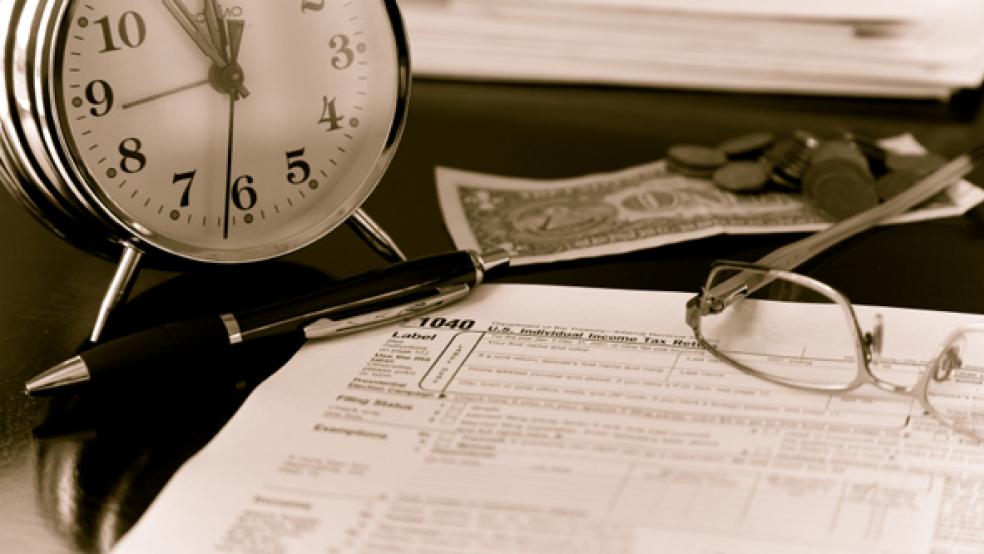With the deadline for filing federal income taxes just days away and President Obama embarking on a week-long series of tax policy talks, the majority of Americans believe they pay a reasonable amount in taxes – or perhaps even less than they ought to, according to a survey last month by the Pew Research Center.
But the mood is far from sanguine: “The public sees the nation’s tax system as deeply flawed: 59 percent say ‘there is so much wrong with the federal tax system that Congress should completely change it,’” the report says. “Just 38 percent think the system ‘works pretty well’ and requires ‘only minor changes.’ These opinions have changed little since 2011.”
Related: The Best and Worst States for Paying Taxes in 2015
The poll asked respondents whether they pay less than their fair share of federal income taxes, about the right amount, or more than their fair share, and instructed them to answer while “considering what you get from the federal government.” The poll found that 53 percent of Americans believe they pay the right amount, while 4 percent say they pay less than their fair share unchanged from 2011, when Pew asked a similar question. Additionally, 40 percent of respondents said they believe they pay more than their fair share, up from 38 percent in 2011.
However, the number of Republicans who complained they pay more than their fair share jumped 13 percentage points, from 37 percent to 50 percent, while the share of Democrats who think they pay too much fell to 30 percent from 38 percent. (Interestingly, in 2011, slightly more Democrats than Republicans believed that they were paying more than their fair share.)
Asked how much they’re concerned by certain things about the tax code, a majority of Democrats, Republicans, and Independents all cited corporate tax avoidance as something that bothers them “a lot.” Seventy-five percent of Democrats, 64 percent of Independents, and 52 percent of Republicans said they are bothered by “the feeling that some corporations don’t pay their fair share.”
Democrats (72 percent) and Independents (63 percent) were almost as bothered by the “feeling that some wealthy people don’t pay their fair share.” Republicans were somewhat less concerned, with 45 percent saying it bothers them “a lot.” One in three Republicans said they were bothered a lot by the feeling that poor people don’t pay their fair share of taxes, but only 14 percent of Democrats and 17 percent of Independents felt that way.
SLIDESHOW: The 10 Worst States for Paying Taxes in 2015
None of the three major political groups could muster a majority of members who were very bothered by the amount they personally pay in taxes. Republicans were most concerned, with 36 percent citing serious concern. Among Democrats and Independents, 21 percent and 25 percent, respectively, said their personal tax liability bothers them a lot.
However, the personal finance website WalletHub says that taxpayers who need some last-minute assistance from the Internal Revenue Service might find something to irritate them. Wait times for callers to the IRS average 28 minutes at the underfunded, understaffed agency. And the IRS’s staffing issues don’t just mean annoyed taxpayers. The agency expects to lose some $2 billion in revenue this year because it doesn’t have enough enforcement staff.
President Obama this week has a series of appearances and interviews in which he is expected to discuss tax policy and highlight his difference with Republicans over issues such as equal pay for women and family-friendly workplace policies.
In Congress, House Republicans are expected to move forward with a vote on repealing the estate tax. The law, long hated by the GOP, applies a graduated tax on assets after an individual’s death, capped at 40 percent. However, the first $5.4 million of an estate is tax free. This means that only a tiny percentage of all estates in the U.S. are actually subject to an estate tax.
Top Reads from The Fiscal Times:






